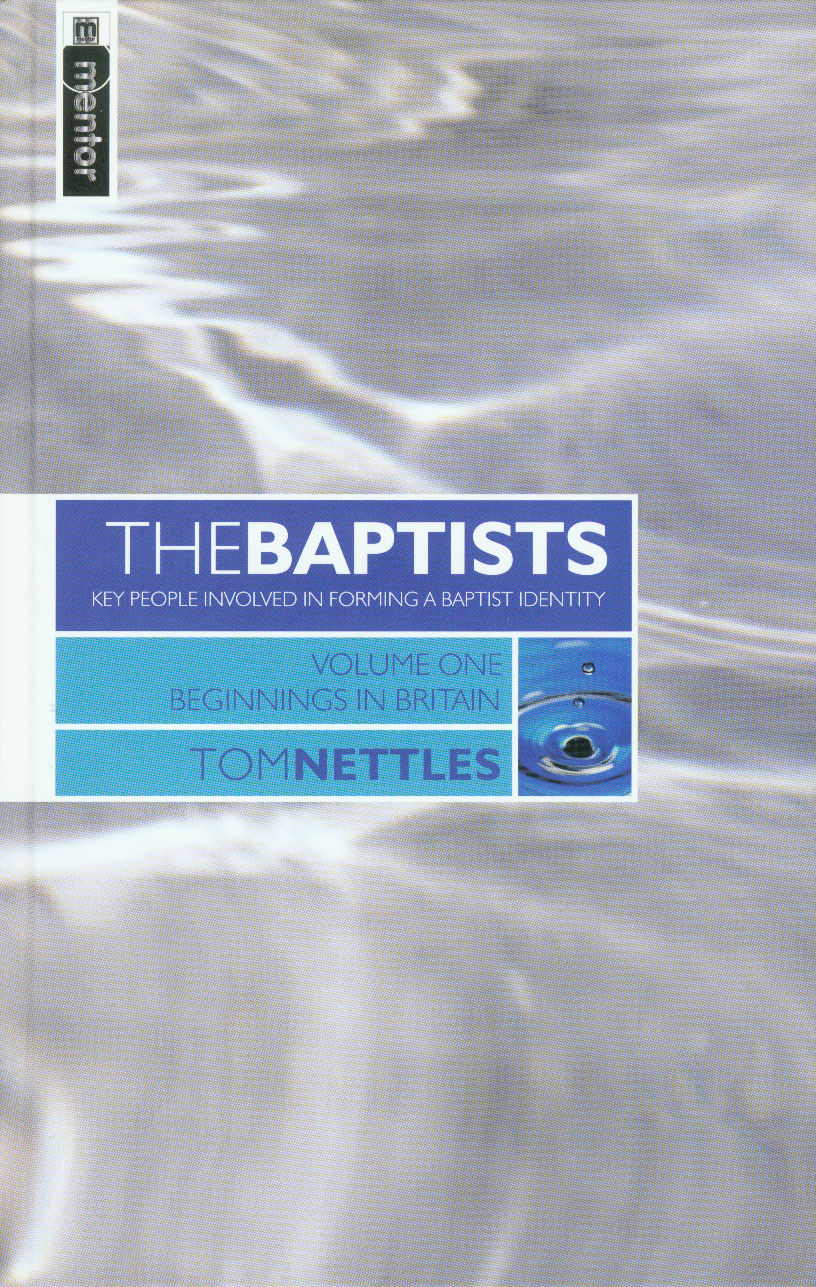
LOUISVILLE, Ky. (BP)–What makes one a Baptist?
Are the defining Baptist attributes liberty of conscience and the competency of the human soul? Or are Baptists a confessional people with their identity tied to a set of objective biblical doctrines that they have believed and clearly articulated through the centuries?
Tom Nettles, professor of historical theology at Southern Baptist Theological Seminary in Louisville, Ky., affirms the latter in his new book, “The Baptists, Volume One: Beginnings in Britain” (Christian Focus/Mentor).
Advocating what he calls a “coherent-truth” model of Baptist identity, Nettles begins by identifying two current — and profoundly different — views of what constitutes a Baptist. The first says Baptist identity is defined by liberty of conscience and the doctrine of soul-competency. Defenders of this view — which Nettles calls “soul-liberty” — argue that Baptists are defined by individual autonomy and experience. Moderate Baptists typically define themselves in terms of the “soul-liberty” model, Nettles writes.
Over against this view, Nettles posits a model -– the “coherent-truth” view — for Baptist identity built on two irreducible foundations. First, he notes that Baptists cannot be defined apart from historic Christianity. While the soul-liberty view sees Baptists as holding to a distinctive set of beliefs that set them apart from the broader evangelical community, Nettles argues that Baptists have always held central doctrines in common with Christians of other evangelical denominations.
Second, Nettles notes that Baptists historically have built their worldview upon the bedrock of objective, biblical truth. By contrast, those who would define Baptists in terms of soul-liberty seek to build a Baptist identity upon the shifting sands of subjective experience, Nettles writes.
“A clear picture of Baptists must involve a more historically comprehensive framework than the soul-liberty view,” Nettles writes. “Soul-liberty has no context apart from a certain view of God, sin and the nature of redemption.
“[Baptists cannot be defined apart from] a worldview committed to the objectivity and investigatibility of truth…. The worldview question necessarily involves the issue of inerrancy. Specifically, truth exists and can be communicated clearly from one mind to another. The Bible is the deposit of this truth that tells clearly how God saves fallen, sinful creatures and what constitutes the nature, function, and future of his church.”
Four essential principles undergird Nettles’ view of Baptist identity. Nettles asserts that Baptists have always been:
— Orthodox. One must first be a Christian before he can be a Baptist, Nettles writes. Baptists have always subscribed to the orthodox doctrines of God, man, the person and work of Christ and the Trinity, among others, he notes.
— Evangelical. Baptists have always believed the doctrines central to the Gospel, including justification by faith, the necessity of the work of Christ and the necessity of the work of the Holy Spirit in salvation.
— Theologically integrated in their view of the local church. “Baptists have always held to a view of the church that is developed in full awareness of its necessary connection with a network of other biblical truths,” Nettles writes. “This involves such components as believers’ baptism by immersion, regenerate church membership, liberty of conscience, separation of church and state, and the necessity of Gospel proclamation to all persons in all nations.”
— Conscientiously confessional. Baptist churches have always made plain to their members and to the world the truths that are believed by the church as a whole, Nettles writes. They have done this by setting forth confessions of faith that have been used for teaching doctrine and in corrective church discipline, he notes.
After arguing for the coherent-truth understanding of Baptist identity, Nettles profiles 11 leaders and movements throughout Baptist history who typified the coherent-truth model, including John Smyth, Thomas Grantham, Dan Taylor, John Spilsbury, William Kiffin, Hanserd Knollys, Benjamin Keach, Andrew Fuller and William Carey.
Nettles’ book is the first volume in a planned three-volume set from Christian Focus. The two remaining volumes of Nettles’ trilogy will be released in the near future and will include additional profiles on formative Baptist leaders and movements chronologically through the 20th century, with each profile building on Nettles’ argument for the coherent-truth model of Baptist identity.
Nettles is the author or coauthor of numerous books, including the groundbreaking 1980 volume, “Baptists and the Bible” (revised and expanded in 1999), with L. Russ Bush, now academic vice president at Southeastern Baptist Theological Seminary in Wake Forest, N.C.
–30–















